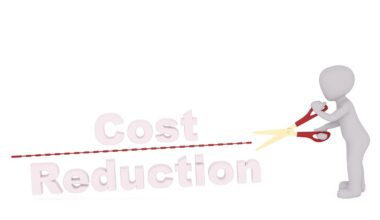Trends in Corporate Reporting of Anticorruption Efforts
In recent years, the importance of anticorruption law has surged as stakeholders demand heightened transparency in corporate governance. Companies are expected to report their anticorruption efforts comprehensively, fostering accountability and ethical conduct within the business sector. Incorporating anticorruption initiatives into standard reporting practices demonstrates a proactive approach, supporting regulatory compliance, and meeting social expectations. Moreover, this growing trend emphasizes the role of corporate social responsibility (CSR) in today’s competitive marketplace. Firms that actively engage in reporting their anticorruption efforts not only enhance their public image but also mitigate risks associated with potential corruption and fraud. As a result, organizations are increasingly investing in compliance programs and adopting best practices in corporate reporting. This shift reflects a broader understanding of how ethical business practices contribute to long-term success and stability. Legal frameworks and global compliance standards play a vital role in shaping these trends, influencing how companies document their anticorruption activities. Addressing both employee training and supplier due diligence is critical, aligning business operations with the evolving expectations of regulators and the public.
As stakeholders demand more accountability from corporations, the need for integrated reporting on anticorruption practices has become notably apparent. Investors, customers, and regulatory bodies are increasingly scrutinizing corporate disclosures regarding ethical conduct and compliance frameworks. Businesses are recognizing that enhanced transparency around anticorruption strategies can significantly influence their reputation and shareholder trust. Consequently, many organizations are adopting frameworks such as the Global Reporting Initiative (GRI) and the United Nations Global Compact to incorporate anticorruption metrics into their sustainability reports. These frameworks help businesses communicate their commitment to good governance while outlining measurable goals and progress reports. Anticorruption reporting not only minimizes risks but also fosters a culture of compliance throughout an organization. By implementing robust internal control systems and punishments for violations, companies can demonstrate accountability while ensuring their workforce understands the importance of ethical conduct. Additionally, linking executive compensation to compliance performance has also gained traction, aligning personal incentives with broader corporate ethics. Ultimately, these initiatives contribute to an overall reduction in corruption risk, enabling firms to thrive in a responsible, sustainable manner.
Legal Requirements and Standards
Legal compliance continues to shape corporate reporting on anticorruption efforts significantly. Various jurisdictions enforce stringent laws requiring companies to disclose their anticorruption policies and practices. For example, the U.S. Foreign Corrupt Practices Act (FCPA) mandates that publicly traded companies provide accurate records of their financial transactions, which includes expenditures related to bribery and corruption. Similar regulations exist in other regions, such as the UK Bribery Act and the OECD Anti-Bribery Convention, emphasizing the global nature of the anticorruption movement. Companies failing to research and adhere to these laws expose themselves to severe legal consequences, including fines, sanctions, and reputational damage. Thus, organizations must remain vigilant and integrate compliance as an essential component of their corporate governance strategies. By establishing comprehensive anticorruption frameworks that clearly outline reporting requirements, firms can streamline their compliance processes. Furthermore, organizations should leverage technology to automate their reporting procedures, ensuring timely and accurate disclosure of pertinent information while maintaining adherence to regulatory standards. The ongoing legal evolution will undoubtedly influence corporate behavior, pushing firms to enhance their anticorruption efforts further.
Technological advancements are playing a pivotal role in shaping how companies report their anticorruption efforts. With the proliferation of data analytics and artificial intelligence (AI), organizations can now track and analyze their compliance data more efficiently than ever. These technologies facilitate the identification of risk areas, allowing businesses to allocate resources appropriately and preemptively address potential issues. Furthermore, blockchain technology is emerging as a tool that enhances transparency in transactions, offering a permanent, immutable record of interactions between organizations and stakeholders. Through the deployment of these innovative solutions, companies can optimize their anticorruption reporting processes, ensuring that their disclosures are accurate, reliable, and timely. Adopting technology-driven approaches not only satisfies regulatory requirements but also builds trust with stakeholders who expect high standards of accountability. Training and capacity-building efforts are equally essential as companies navigate these new tools. Ensuring that employees are equipped with the necessary skills to leverage technology for anticorruption reporting will ultimately strengthen an organization’s ethical framework and enhance overall business integrity. As firms embrace digital transformation, they will significantly expand their capacity to combat corruption in today’s global marketplace.
Challenges in Reporting
Despite the growing emphasis on transparency in anticorruption reporting, companies still face several challenges in effectively communicating their efforts. One major hurdle is the inconsistent definitions and interpretations of anticorruption metrics across different jurisdictions and regulatory bodies. This lack of standardization can lead to confusion and misrepresentation of a company’s actual practices, making it harder for stakeholders to gauge their performance accurately. Additionally, organizations often struggle with collecting and validating the necessary data to support their disclosures. Many firms lack the infrastructure or resources to maintain comprehensive records, resulting in inadequate reporting that does not fully reflect their anticorruption initiatives. Furthermore, the sensitivity surrounding anticorruption matters may inhibit companies from sharing critical information publicly. They may fear potential reprisals or damage to their reputations, especially if they are still addressing past incidents. Consequently, businesses must navigate these challenges thoughtfully while striving to enhance their transparency. Collaborating with external auditors and consultants can help organizations refine their reporting processes, ensuring their disclosures align with best practices, fostering greater trust among stakeholders.
Corporate culture plays a significant role in shaping how organizations approach their anticorruption reporting efforts. Companies that prioritize ethics and integrity are more likely to maintain robust compliance programs and transparent reporting mechanisms. It is essential for leadership to set the tone at the top and promote a culture that encourages accountability and good governance. Engaging employees through training and awareness initiatives can further reinforce the importance of ethical conduct in business operations. Organizations should establish mechanisms for employees to report suspected misconduct without fear of retaliation, ensuring that everyone feels empowered to uphold the company’s values. Additionally, boards of directors must actively oversee anticorruption strategies, integrating them into overall corporate governance frameworks. This alignment signals to stakeholders that the organization is committed to ethical practices and willing to invest in compliance efforts. Moreover, organizations should recognize that building a culture of integrity extends beyond the workplace; working with ethical suppliers and partners is crucial. As companies continue to navigate the evolving landscape of anticorruption regulations, fostering a strong corporate culture will remain a cornerstone of effective reporting and risk mitigation.
Future of Anticorruption Reporting
Looking ahead, it is clear that the trend toward better corporate reporting on anticorruption efforts will persist. As the landscape evolves, businesses will need to adapt their reporting frameworks to keep pace with changing regulations and stakeholder expectations. Anticipating future developments, organizations should remain innovative in their approaches to compliance. Emphasizing the integration of anticorruption initiatives within broader corporate strategies will enhance their overall effectiveness. Moreover, companies must actively engage with stakeholders to gather feedback on their reporting practices, ensuring they meet the demands of investors, customers, and regulators alike. Collaboration between organizations can also play a vital role, sharing methodologies and best practices that foster an industry-wide culture of integrity. As stakeholders continue to push for increased transparency, businesses will be compelled to move beyond traditional reporting and embrace more dynamic methods of disclosure. These methods might include real-time reporting and leveraging interactive platforms to engage audiences. The future of anticorruption reporting holds great potential for transforming corporate governance, ultimately fostering a more ethical business environment globally.
In the world of corporate governance, understanding the need for and implementation of anticorruption frameworks is crucial. Companies must take proactive measures to detect, prevent, and address corruption risks in their operations. Engaging with stakeholders encourages them to provide the necessary feedback that can refine anticorruption strategies. Regular assessments and audits can further strengthen a company's compliance mechanisms, allowing them to adapt to the evolving legal landscape. Developing training materials specially designed for employees to understand anticorruption practices is equally important, ensuring everyone is informed about company policies. Constructive dialogue with stakeholders and peer organizations can create best practices, effectively sharing information about challenges faced in anticorruption efforts. Moreover, organizations must prioritize data protection and compliance with privacy laws when reporting their anticorruption initiatives. Companies that demonstrate a commitment to ethical standards through comprehensive reporting of their anticorruption efforts attract and maintain trust from existing and potential investors. Ultimately, the future of corporate reporting hinges on these practices, leading to a responsible business environment where ethical conduct flourishes. Successful corporations will be those that embed integrity deeply into their business operations.


